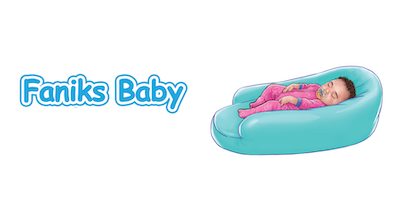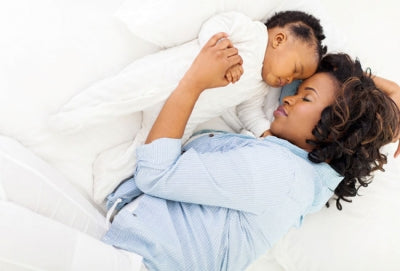Baby Sleep Basics
There are wide variations in infant sleep patterns, but new babies usually sleep for about to 16- 18 hours daily. This subsequently decreases gradually to about 11-14 hrs. Per day by at 1 year of age
HOW LONG SHOULD INFANTS SLEEP?
There is a wide variation in sleep patterns. The national sleep association recognizes the vast individual differences in normal sleep patterns and in making recommendations accommodate these appropriate variations of normal sleep duration. This table is adapted from the most recent recommendations, at the time of this writing.
National Sleep foundation’s sleep duration recommendations (Rec.):
|
Age |
Rec. |
May be appropriate |
Not Rec |
|---|---|---|---|
|
Newborns ( 0-3 months) |
14 to17 hrs |
11 to 13 hrs 18 to 19 hrs |
< 11 hrs > 19 hrs |
|
Infants (4 -11 months) |
12 to 15 hrs |
10 to 11 hrs 16 to 18 hrs |
< 10 hrs >18 hrs |
|
Toddlers 1-2 years |
11 to 14 hrs |
9 to 10 hrs 15 to 16 hrs |
< 9 hrs > 16 hrs |
Infants between 6-12 months usually will need at least one nap during the daytime. Unless otherwise recommended by your healthcare provider, babies, six months old and older are usually able to sleep for 6-8 hours at night without nighttime feedings.
Infants between 6-12 months usually will need at least one nap during the daytime. Unless otherwise recommended by your healthcare provider, babies, six months old and older are usually able to sleep for 6-8 hours at night without nighttime feedings.

RECOMMENDATIONS FOR A SAFE INFANT SLEEPING ENVIRONMENT
- Always place your baby on his or her back for every sleep time. (Making babies sleep on their backs helps reduce their risk of SIDS (Sudden Infant Death Syndrome)
- Always use a firm sleep surface. Car seats and other sitting devices are not recommended for routine sleep.
- The baby should sleep in the same room as the parents but not in the same bed (room-sharing without bed-sharing).
- Keep soft objects or loose bedding out of the crib. This includes pillows, blankets, and bumper pads.
- Wedges and positioners should not be used.
- Don’t smoke during pregnancy or after birth.
- Breastfeeding is recommended.
- You may offer a pacifier at nap time and bedtime.
- Avoid covering the infant’s head or overheating.
SOME TRICKS TO HELP YOUR INFANT SLEEP BETTER
- Make sure your baby is not swaddled too hot or too warm; if you are feeling hot then your baby is probably feeling hot as well.
- Don’t wear more than 1 clothing layer difference in the thickness between you and your baby.
- Make sure your baby has a routine; you should establish a sleep time routine and stick to it. Make your baby goes to bed same time, same place everyday.
- Rocking your baby before placing the baby to bed helps lull your baby to sleep
- A small baby usually feels more secure in a bassinet than in a crib
- You may want to have your baby sleep in the same room with you for the first few months after birth.
Discover Faniks Baby Sleeper
- Policy statement SIDS and other sleep-related infant deaths: expansion of Recommendations for a Safe Infant Sleeping Environment." Www.aap.org. American Academy of Pediatrics, 17 Oct. 2011. Web. 11 Feb. 2016. <http://pediatrics.aappublications.org>.
- "National Sleep Foundation Recommends New Sleep Durations." National Sleep Foundation Recommends New Sleep Durations. Ed. NSF. National Sleep Foundation, 2 Feb. 2015. Web. 11 Feb. 2016. <https://sleepfoundation.org/>.



